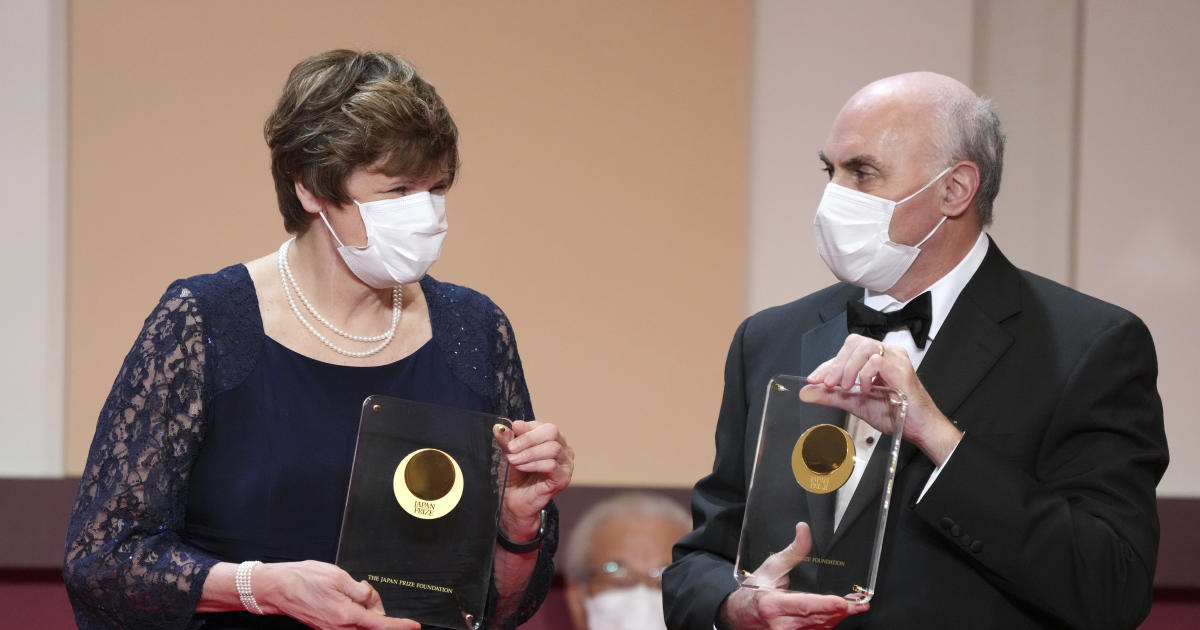Stockholm — The Nobel Prize in medicine has been awarded to Hungarian Katalin Karikó and Drew Weissman of the U.S. for their groundbreaking discoveries that enabled the development of highly effective mRNA vaccines against COVID-19. Thomas Perlmann, secretary of the Nobel Assembly, announced this prestigious award on Monday in Stockholm.
The panel that awarded the prize stated, “Through their groundbreaking findings, which have fundamentally changed our understanding of how mRNA interacts with our immune system, the laureates contributed to the unprecedented rate of vaccine development during one of the greatest threats to human health in modern times.”
Thomas Perlmann, the secretary of the Nobel Assembly, announced the prize and revealed that both scientists were “overwhelmed” by the news of their victory when he contacted them shortly before the official announcement.
Drew Weissman is a professor at the University of Pennsylvania, serving as the director of vaccine research in the Infectious Diseases Division and as the director of the Institute for RNA Innovation. Katalin Karikó is a professor at Sagan’s University in Hungary and an adjunct professor at the University of Pennsylvania.
Katalin Karikó recounted the moment she received the news of her Nobel Prize victory, saying, “I couldn’t believe it. I was very much surprised. But I am very happy.”
Prior to the COVID-19 pandemic, mRNA vaccines were already undergoing testing for other diseases like Zika, influenza, and rabies. However, the pandemic accelerated the development and attention towards this innovative approach.
Katalin Karikó stated, “There were already clinical trials before COVID, but people were not aware.”
Traditional vaccine production involved growing viruses or viral components in large-scale bioreactors or chicken eggs, followed by purification. The mRNA approach revolutionizes this process by utilizing genetic code snippets that instruct our bodies to produce proteins, initiating an immune response.
In 2020, Drew Weissman explained, “Instead of growing up a virus in a 50,000-liter drum and inactivating it, we could deliver RNA and our bodies make the protein, which starts the immune response.” The mRNA approach was successfully utilized in the development of vaccines by Moderna and Pfizer/BioNTech.
Within the first year of their introduction, over 4.3 billion people worldwide received COVID-19 vaccines, resulting in an estimated saving of nearly 20 million lives.
Dr. Paul Hunter, a professor of medicine at the University of East Anglia, described mRNA vaccines as a “game changer” in the fight against the coronavirus pandemic.
Dr. Hunter stated, “If it hadn’t been for the mRNA technology, COVID would have been much worse. Vaccines generally were the turning point in slowing down COVID, and the mRNA vaccines were just so much better than all the others.” He also noted that non-mRNA formulas, like the one from AstraZeneca, are now rarely used.
Katalin Karikó previously served as a senior vice president at BioNTech, which partnered with Pfizer for the production of one of the COVID-19 vaccines. According to the BioNTech website, she has worked as an external consultant there since 2022. She is the 13th woman to win the Nobel Prize in medicine. Drew Weissman is currently a professor and director of the Penn Institute for RNA Innovations at the University of Pennsylvania.
Dr. Bharat Pankhania, an infectious diseases expert at Exeter University, highlighted one major advantage of mRNA technology: the ability to produce vaccines in large quantities through laboratory-based manufacturing of key components.
Dr. Pankhania predicted that this technology could be further refined for vaccines targeting diseases such as Ebola, malaria, dengue, and potentially even certain types of cancer or autoimmune diseases like lupus. He explained, “It’s possible that we could vaccinate people against abnormal cancer proteins and have the immune system attack them after being given a targeted mRNA shot. It’s a much more targeted technology than what was previously available and could revolutionize not only outbreak responses but also the management of non-communicable diseases.”
The Nobel Prize announcements will continue with the physics prize on Tuesday, chemistry on Wednesday, literature on Thursday, the peace prize on Friday, and the economics award on October 9th.
The Nobel Prizes carry a cash award of 11 million Swedish kronor ($1 million), funded by a bequest left by the prize’s creator, Swedish inventor Alfred Nobel, who passed away in 1896.
The laureates are invited to receive their awards at ceremonies held on December 10th, the anniversary of Alfred Nobel’s death. The peace prize ceremony takes place in Oslo, according to Nobel’s wishes, while the other award ceremonies are held in Stockholm.
Denial of responsibility! Vigour Times is an automatic aggregator of Global media. In each content, the hyperlink to the primary source is specified. All trademarks belong to their rightful owners, and all materials to their authors. For any complaint, please reach us at – [email protected]. We will take necessary action within 24 hours.



